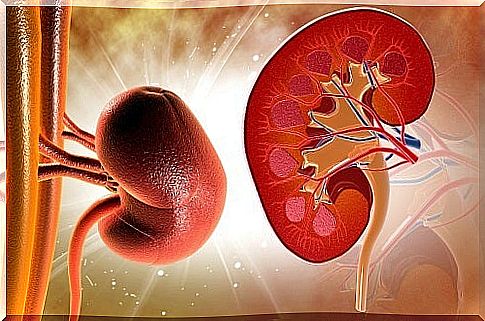Problems With Holding Urine
It is possible that, during childhood, on more than one occasion we have heard our parents say that it is bad to hold urine. And in turn, they may have urged us to go to the bathroom whenever we need it and, as a prevention, before leaving home.
There is nothing more true. Holding back the urge to urinate has health consequences. In fact, one of the most common is to promote the appearance of various infections.
Holding urine affects kidney function
In principle, it must be borne in mind that the kidneys are not designed to hold urine, but to eliminate it. They play a fundamental role in taking care of tasks, such as:
- Filter toxins and eliminate them through urine. In addition, they are responsible for evacuating excess mineral salts and liquid.
- Homeostatic functions that seek the internal stability of the organism and correct cellular function.
- Generate hormonal messages that communicate to the endocrine system the need to produce red blood cells or regulate blood pressure.

So when we retain urine for long periods of time, we are preventing the system from evacuating toxins and waste. And if we have a habit of holding urine, then the problems may be greater.
Let’s look at some of the most common consequences.
1. Stones in the kidneys
It refers to the fragments of matter that can form in our kidneys and get trapped in the ureters that connect with the bladder or in the urethra. Depending on the size of the kidney stone, it may painfully obstruct the ducts.
There seems to be a relationship between the amount of fluid we consume and the density of urine with respect to a greater vulnerability to generate stones. Therefore, it is recommended to consume enough water daily, either in liquid form or through food, such as fruits, for example.
In the event that kidney stones are diagnosed, it is not recommended to hold urine, but rather the opposite: try to go to the bathroom as many times as you want, while maintaining good hydration.
2. Cystitis
These infections are associated with the presence of bacteria and germs in the kidney, which is annoying and painful for the person suffering from them. Some of its symptoms are:
- Pain in the lower belly area.
- Intense burning during urination.
- Frequent urge to urinate
- Feeling of not being able to finish urinating.
Holding urine is a factor of vulnerability when it comes to suffering from cystitis, especially in women. Instead it is recommended to drink enough liquid and perform an adequate emptying of the bladder. In addition to maintaining good hygiene in the area.
3. Vesicoureteral reflux
Caused by backward movement of urine from the bladder into the ureters connected to the kidneys. It is associated with an increase in urine infections. Its symptoms include, among others, the desire to hold the urine to avoid the stinging when expelling it.
As part of medical treatment, we find that the Spanish Pediatric Association advises to adopt habits such as:
- Frequent and abundant intake of fluids, to stimulate the emptying of the bladder and obtain urine where germs are most vulnerable.
- Correct urination habits, stimulating frequent and complete urination, avoiding holding the urine and favoring bacterial growth.
Holding urine makes us more vulnerable
As we have seen, holding the urge to urinate does not bring benefits, but rather, increases the risks of suffering from various diseases. And even more so when it is out of habit.
For this reason, it is recommended that you go to the bathroom as many times as you need and that you avoid, as far as possible, putting up with the urge to urinate.









